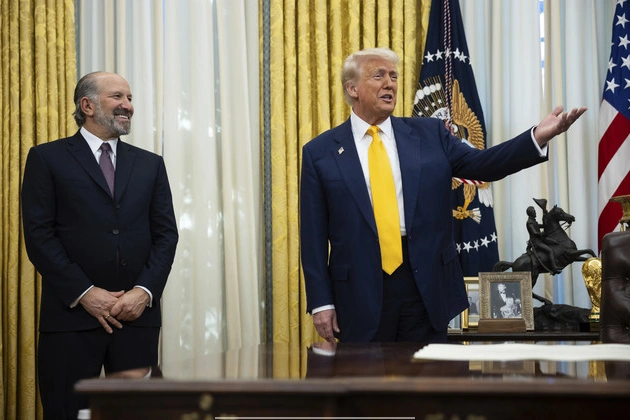
President Donald Trump has recently finalized tariffs on Canada, Mexico, and China, which are poised to trigger a trade war with global implications.
The additional tariffs on Canadian and Mexican goods are set at 25 percent, with the exception of Canadian energy, which will face a 10 percent tariff. Similarly, Chinese goods will also be subjected to a 10 percent tariff, as announced by the White House.
North American Trade War Concerns
This move sets the stage for a potential North American trade war, raising concerns among economists about its impact on economic growth and inflation in the region. While the new duties take effect imminently, goods shipped before the tariff implementation date will be exempt from the higher taxes.
The decision to impose these tariffs came after unsuccessful attempts to address Trump’s apprehensions with the three countries regarding issues such as fentanyl trafficking, undocumented migration, and the U.S. trade deficit. Despite concerns over potential price hikes, Trump remains steadfast in his belief that tariffs lead to success rather than inflation.
Economic Ramifications and Forecasts
Economists warn that these new tariffs could have adverse effects on the U.S. economy, potentially affecting the stock market and complicating Trump’s calls for further interest rate reductions by the Federal Reserve.
A 25 percent tariff on Mexican and Canadian goods, coupled with a 10 percent tariff on Chinese products, may result in a decline of U.S. economic output by 1.5 percent in 2025 and 2.1 percent in 2026. This decrease is attributed to higher prices dampening consumer spending and business investments, according to Gregory Daco, the chief economist at EY-Parthenon.
Furthermore, inflation is expected to rise by 0.7 percentage points in the first quarter due to the new tariffs, with a 0.4 percentage point increase projected for the entire year compared to a scenario without the tariffs.
Political and Industry Responses
Immediate reactions from Congress reflect partisan divides, with Republicans viewing the tariffs as necessary to address America’s concerns about trade practices, border security, and immigration. In contrast, Democrats criticize the tariffs as inflationary and damaging to national security.
Canada, Mexico, and China collectively represent a significant portion of U.S. imports, accounting for approximately 40 percent of goods purchased by American consumers and companies worldwide. The agricultural sector, in particular, is bracing for potential retaliatory measures from these trading partners.
Industry experts and political figures have expressed concerns about the ramifications of these tariffs, with warnings of economic consequences, job losses, and market disruptions. The auto industry, in particular, faces significant challenges if the tariffs are fully enforced.
Varied Perspectives on Tariffs
While some business groups support the tariffs as a necessary measure to protect American industries, others view them as detrimental to productivity and high-wage job creation. The impact on sectors like agriculture and auto manufacturing is expected to be particularly severe.
Despite ongoing tensions with China and previous tariff impositions, the latest actions against Canada and Mexico contradict the spirit of the U.S.-Mexico-Canada Agreement (USMCA) negotiated during Trump’s first term. The repercussions of these tariffs could strain diplomatic relations and trade dynamics among these key partners.
Conclusion
President Trump’s decision to impose tariffs on Canada, Mexico, and China has sparked debates and concerns about their economic and political ramifications. The global trade landscape is evolving rapidly, and the long-term effects of these tariffs remain uncertain.















